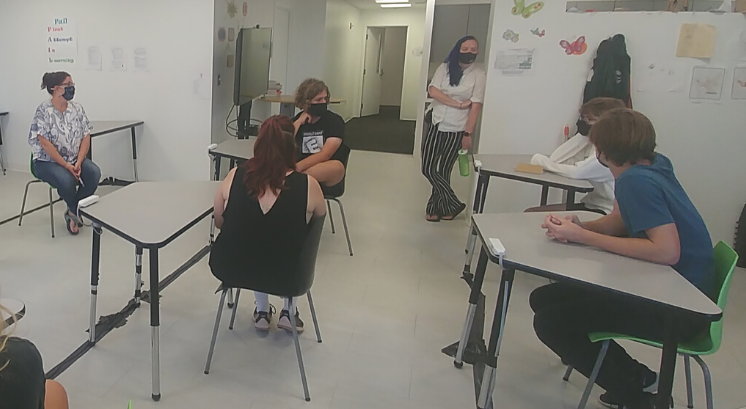High School Psych Experience

At The Sycamore School, each cohort has a different experience class. This transdisciplinary class weaves together language arts, science, history, and math under a common theme. This year, our high school cohort’s experience theme is Psychology. They will read fiction and nonfiction books, participate in book talks, conduct psychology experiments, and learn about historical events, all that weave in psychology. Unit themes include lifespan development, learning, memory, cognition, motivation, social interactions, ethics of experimentations, psychological disorders and treatment, as well as research methods, measurement, and statistics.
Since I’m a clinical psychologist, I launched the psych experience class and facilitated their first unit, which focused on personal learning and intelligence. We discussed different theories of intelligence, had the students take the Myers-Briggs personality assessment, and discussed different learning preferences. Students developed their own learning profiles, which included their strengths, personality traits, and some learning strategies.
Going forward, students will study research protocols around psychological experiments and learn about ethical standards and safeguards. They will study some well-known historical psychological experiments such as Little Albert and classical conditioning, Piaget’s salivating dogs and operant conditioning, and the Stanford prison experiment and how likely humans are to conform to social roles. They will also conduct their own experiments around classical and operant conditioning. The end of the year showcase will feature students designing their own independent psychological experiment.
Students will also learn about how humans relate to one another, how we are influenced by groups (conformity), and how leaders influence us. Students have a choice of books to read and then will participate in book talks. The books range from young adult literature such as Turtles All the Way Down by John Greene and Speak by Laurie Halse Anderson to Flowers for Algernon by Daniel Keyes and Educated by Sarah Westover.
Posted in:
